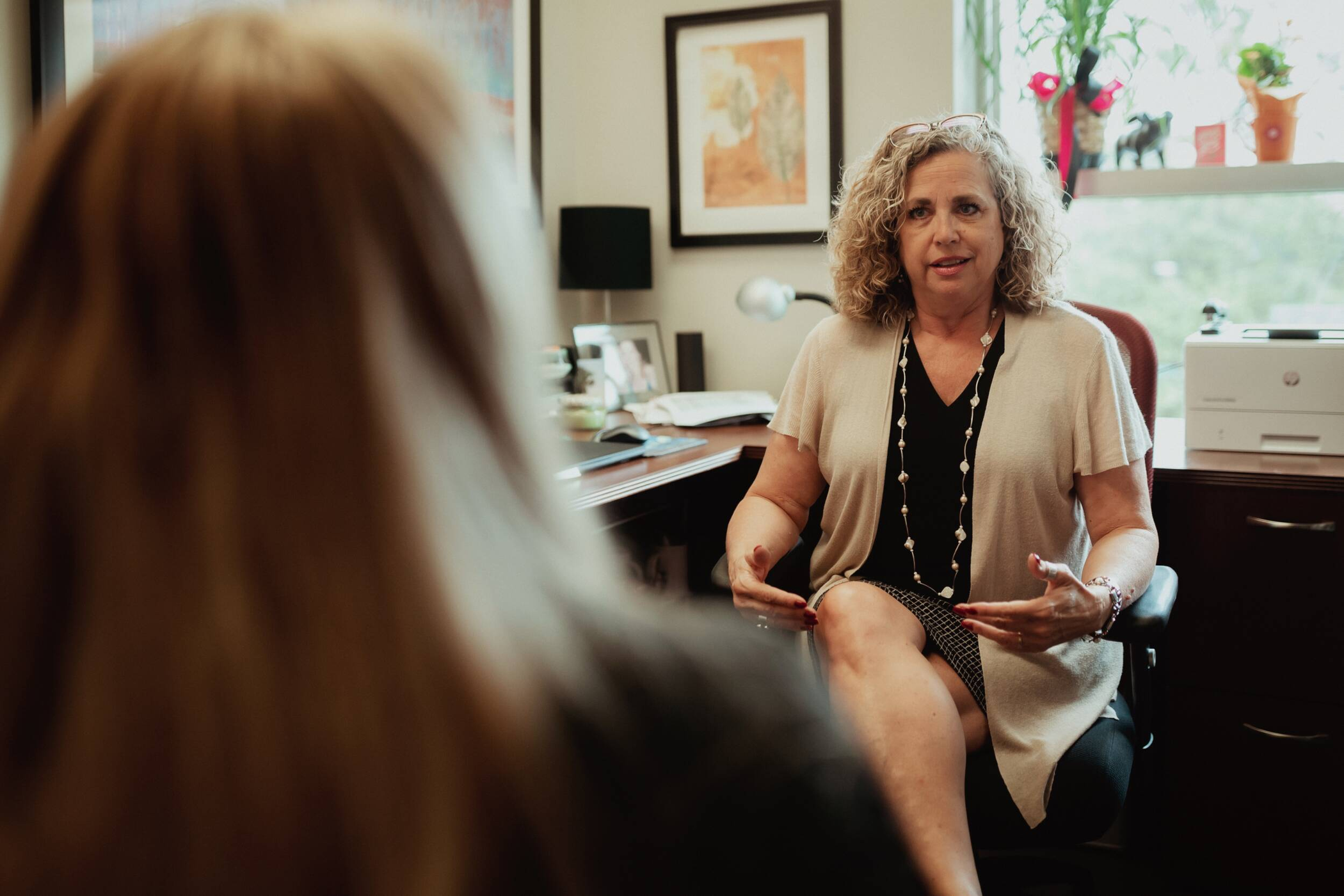May is Mental Health Awareness Month
May is Mental Health Awareness Month, but South Carolina student-athletes have access to comprehensive mental health care all year long. South Carolina Athletics provides its student-athletes access to a wide variety of mental health providers, with expertise ranging from mental performance to mental health services, covering their psychological, psychiatric, and emotional needs. Students can also be referred to other professionals if needed.
South Carolina Athletics has six mental health professionals on staff with psychiatrist and Medical Director of Mental Health Dr. Timothy Malone, Director of Operations for Mental Health and Performance Sarah Noll, LISW-CP, licensed psychologists Dr. Rhea Merck and Dr. Mike McCall, sports psychologist Dr. Jan Veinot, and Director of Sport Leadership and Mental Performance, Dr. Raylene Ross. The Gamecocks are taking advantage of these resources and have had great results
“Dr. Merck always helps me sort my thoughts and make things clearer again,” said track and field graduate student Elena Kelety. “I know I can tell her whatever is on my mind, and she will give me her best advice. I also feel seen as a person and that she cares about me and sincerely wants to help me. After meeting with Dr. Merck, I always feel better and can see things from another perspective, which is sometimes needed.”
“(Dr.) Jan (Veinot) has impacted my life in such an amazing way,” said senior softball student-athlete Karsen Ochs. “I am confident that she has my best interest at heart, wants me to succeed, and wants to help in whatever way she can. Not only do I have her support in the office, but also on the field and in my personal life. She frequently supports us at games, texting me after big games or a big weekend and even just checks in. I am so thankful that I got plugged in with Jan, I would not be where I am without her.”
“I transferred to South Carolina this year as a grad student on the swim team,” said Victoria Kwan. “Although I’ve had prior experience in college, I still struggled transitioning to a new school — especially in the fall. (Dr.) Raylene (Ross) was really helpful with this transition and just everyday struggles. I don’t think I would have stayed if not for Raylene. When it came to SECs, I really struggled with my performances both physically and mentally. However, she was calm, supportive, and helped me every step of the way through encouragement and reasoning.
“Rather than seeing a Mental Health & Performance Provider, it felt more like talking with a friend. I look forward to my weekly meetings with Raylene.”
“It is okay to struggle! You are not alone. But you do not have to stay in that place. Reaching out for help is one of the bravest and most helpful things you can do.”

Poor mental health can affect anyone for different reasons, even those who seem to “have it all.” Data from the American College Health Association National College Health Assessment shows that 65% of college students feel hopeless, which is one of the leading risk factors of suicide. Suicide is the third leading cause of death for individuals in South Carolina ranging between the ages of 10-24. The key in all of this is recognizing when someone needs help and getting them to seek or want to be helped.
“I would say that struggling with mental health shouldn’t be something that you feel ashamed about,” said another Gamecock student-athlete who wished to remain anonymous. “If anything, it makes us more human. For men specifically, speaking up about mental health can be difficult because of the stigma around men’s mental health, but it has been getting better with professional athletes such as Giannis Antedekoupo from the Bucks NBA team opening up and other professional athletes opening up should encourage others to do the same.
“Dr. Veinot (pictured above) and I have been meeting in regard to the pressures that I have been facing through this year. She has helped me frame my perspective on certain things differently, while also giving me helpful tips that I can apply at home or literally anywhere. This is meaningful for me because she easily relates to a lot of things and has tons of industry knowledge. I can pretty much talk about anything, and she can help with whatever it is we are talking about.”
“Dr. Merck is very supportive in all areas of my life: mentally, athletically, and academically,” said another student-athlete who wished to remain anonymous. “This is meaningful to me because I am reminded that someone is rooting for me always, no matter how well I am performing.”
As more student-athletes become comfortable in seeking help for mental health issues, they’re happy to spread the word to their teammates and others about being willing to talk and taking advantage of what South Carolina has to offer.
“Don’t be afraid to reach out for help because you are not alone,” Kwan said. “It can be intimidating at first, but it gets easier every time you go. Trust the process and put faith in your provider that they want to help you.”
“Having someone I know listens to me and intends to help me is helpful and valuable,” Kelety said. “I genuinely appreciate her investment and openness, as I know I can reach out to her whenever needed. I recommend everyone meet with someone from the mental health and performance team as everyone can benefit from working with someone professional.”
“It is okay to struggle!” added a student-athlete who preferred to stay anonymous. “You are not alone. But you do not have to stay in that place. Reaching out for help is one of the bravest and most helpful things you can do.”
If you or someone you know is struggling with their mental health, please reach out for help. You are not alone. If you are a University of South Carolina student-athlete, you can complete a referral form on Teamworks.
Additional resources:
- USC Counseling and Psychiatry Services: Call (803)777-5223
- SC Mobile Crisis Unit: Call (833)364-2274
- National Suicide Prevention Hotline: Dial 988
- Crisis Text Line text “Talk” to 741741

Dr. Rhea Merck












